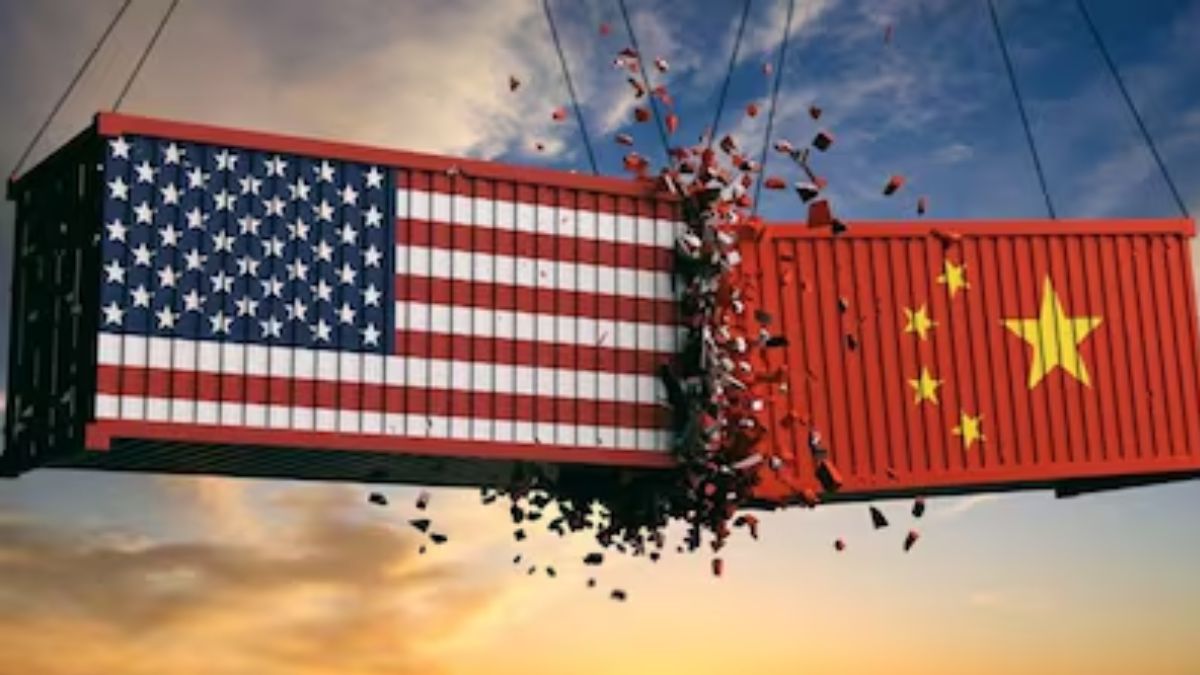US-China trade talks set to begin in London on Monday face renewed turbulence as a series of disputes threaten the fragile truce reached last month over tariffs. The two countries had agreed in Geneva to suspend most of the 100%-plus tariffs imposed during their escalating trade war, aiming for a 90-day suspension to ease global recession fears.
However, tensions flared almost immediately after the May 12 announcement. The US Commerce Department issued guidance suggesting the use of Huawei’s Ascend AI chips could breach US export controls, citing concerns that the chips were developed using restricted American technologies.
The move drew a sharp response from Beijing. “The Chinese side urges the US side to immediately correct its erroneous practices,” a spokesperson from China’s Commerce Ministry said. US export restrictions targeting China’s tech industry, particularly advanced semiconductors, have long been a point of contention between the two powers.
President Donald Trump spoke at length with Chinese leader Xi Jinping by phone last Thursday in an attempt to put relations back on track. Trump announced on social media the next day that trade talks would be held on Monday in London.
The latest frictions began just a day after the May 12 announcement of the Geneva agreement to “pause” tariffs for 90 days.
The US Commerce Department issued guidance saying the use of Ascend AI chips from Huawei, a leading Chinese tech company, could violate US export controls. That’s because the chips were likely developed with American technology despite restrictions on its export to China, the guidance said.
Impact Shorts
More ShortsThe Chinese government wasn’t pleased. One of its biggest beefs in recent years has been over U.S. moves to limit the access of Chinese companies to technology, and in particular to equipment and processes needed to produce the most advanced semiconductors.
”The Chinese side urges the US side to immediately correct its erroneous practices,” a Commerce Ministry spokesperson said.
US Commerce Secretary Howard Lutnick wasn’t in Geneva but will join the talks in London. Analysts say that suggests at least a willingness on the US side to hear out China’s concerns on export controls.
One area where China holds the upper hand is in the mining and processing of rare earths. They are crucial for not only autos but also a range of other products from robots to military equipment.
The Chinese government started requiring producers to obtain a license to export seven rare earth elements in April. Resulting shortages sent automakers worldwide into a tizzy. As stockpiles ran down, some worried they would have to halt production.
Trump, without mentioning rare earths specifically, took to social media to attack China.
“The bad news is that China, perhaps not surprisingly to some, HAS TOTALLY VIOLATED ITS AGREEMENT WITH US,” Trump posted on May 30.
China’s Commerce Ministry addressed the matter last week when asked about claims that it had violated the Geneva agreement. It asserted that it was the United States that had undermined the truce by issuing new export control guidelines for AI chips, halting the sale of chip design software to China, and initiating visa revocations.
“The United States has unilaterally provoked new economic and trade frictions,” the ministry said in a statement posted on its website.
US Secretary of State Marco Rubio defended the visa move in a May 28 statement, calling it necessary for national security. Over 270,000 Chinese students studied in the US in the 2023–24 academic year.
As negotiators prepare for the London meeting, analysts warn that progress could be undermined if both sides continue to escalate disputes across trade, technology, and geopolitical lines.
US Secretary of State Marco Rubio said in a May 28 statement that the United States would “aggressively revoke visas for Chinese students, including those with connections to the Chinese Communist Party or studying in critical fields.”
More than 270,000 Chinese students studied in the US in the 2023-24 academic year.
With inputs from agencies.
)